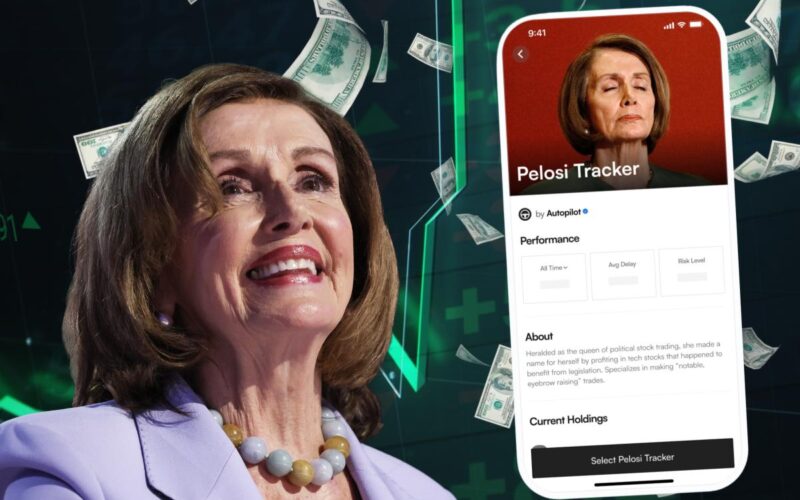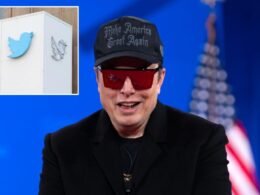Nancy Pelosi may be retiring, but Autopilot — the app that helped make her an iconic stock trader by tracking her investments — is just getting started.
It now has $1 billion under management and three million downloads — and it just raised $8 million to grow the company and expand its physical presence from San Francisco to New York City.
“Our mission is the same… it’s to find the best investors and showcase them all in an effort to bring more transparency to the broader institutions,” Chris Josephs, the 30-year-old founder of Autopilot and the Pelosi Tracker on social media, told me.
Autopilot lets users automatically copy or follow the stock trades of notable figures in finance and Congress.
In addition to hiring more engineers and marketers, the company is also bringing in top talent — including a former trader for Ken Griffin at Citadel. “That’s a win in our book,” Josephs said.
Despite Pelosi’s departure from Washington, D.C., Josephs is not intending to change the name of his popular social media account — @pelositracker — for the next few years. He sees it as sort of an homage to the woman who started it all.
But, he admits, “It’s kind of the end of an era … you’re losing the queen.”
Autopilot will no longer follow Pelosi’s trades once she retires at the end of her term in January, and the company will roll over the roughly $500 million people have bet following her trades into what the company is calling a “general insider trading’ portfolio. It will track the top politicians in her wake, such as Rep. Dan Crenshaw (R-Texas) and Rep. Marjorie Taylor Greene (R-Ga.).
Josephs initially started the app with a few friends as a way to get notifications of each others’ stock trades when he was between tech jobs in 2020.
Around the same time, he began seeing headlines about the then-speaker Nancy Pelosi making smart trades and launched his Twitter account monitoring her moves. The motive initially was novelty, not politics, but he was soon shocked by the timing of some of her trades.
“I didn’t realize how good she actually was and how big of a problem this actually was,” Josephs said.
Among her fortuitous trades, Pelosi bought Tesla right before an infrastructure bill with EV credits was proposed in 202; invested in Nvidia before the CHIPs Act that gave billions to chipmakers passed; and sold Google before the DOJ launched — just to to name a few. Her portfolio consistently outperformed top hedge fund managers’.
Josephs’ reaction went from “reflection” to “holy crap, they’re allowed to do it” to “let me build a way to get in on the action.”
Since launching the tracker, he said it’s been a “whirlwind” and Pelosi’s just “had banger after banger” when it comes to her stock picks.
This story is part of NYNext, an indispensable insider insight into the innovations, moonshots and political chess moves that matter most to NYC’s power players (and those who aspire to be).
While she is one of the most egregious examples of just how successful congressional traders can be, Josephs believes her actions have also brought visibility to how trades are often shady and purposefully opaque.
A speaker for Pelosi, Ian Krager, said in a comment, “Speaker Pelosi does not own any stocks, and she has no prior knowledge or subsequent involvement in any transactions.”
Tracking congressional trades requires going down a bit of a rabbit hole, pulling up files and doing some math to estimate returns.
The filings only need to be done within 45 days of making a trade and the politicians only need to provide a range for the price of the stocks they’re buying.
Josephs thinks things need to be improved.
“Just get rid of the delay, make it transparent, make it open, and then allow people to just watch,” he said.
And, if Pelosi is looking for a gig after she retires from Congress, he might have a job or her. “If anyone has any connection to her, we would love to hire her,” he joked.








